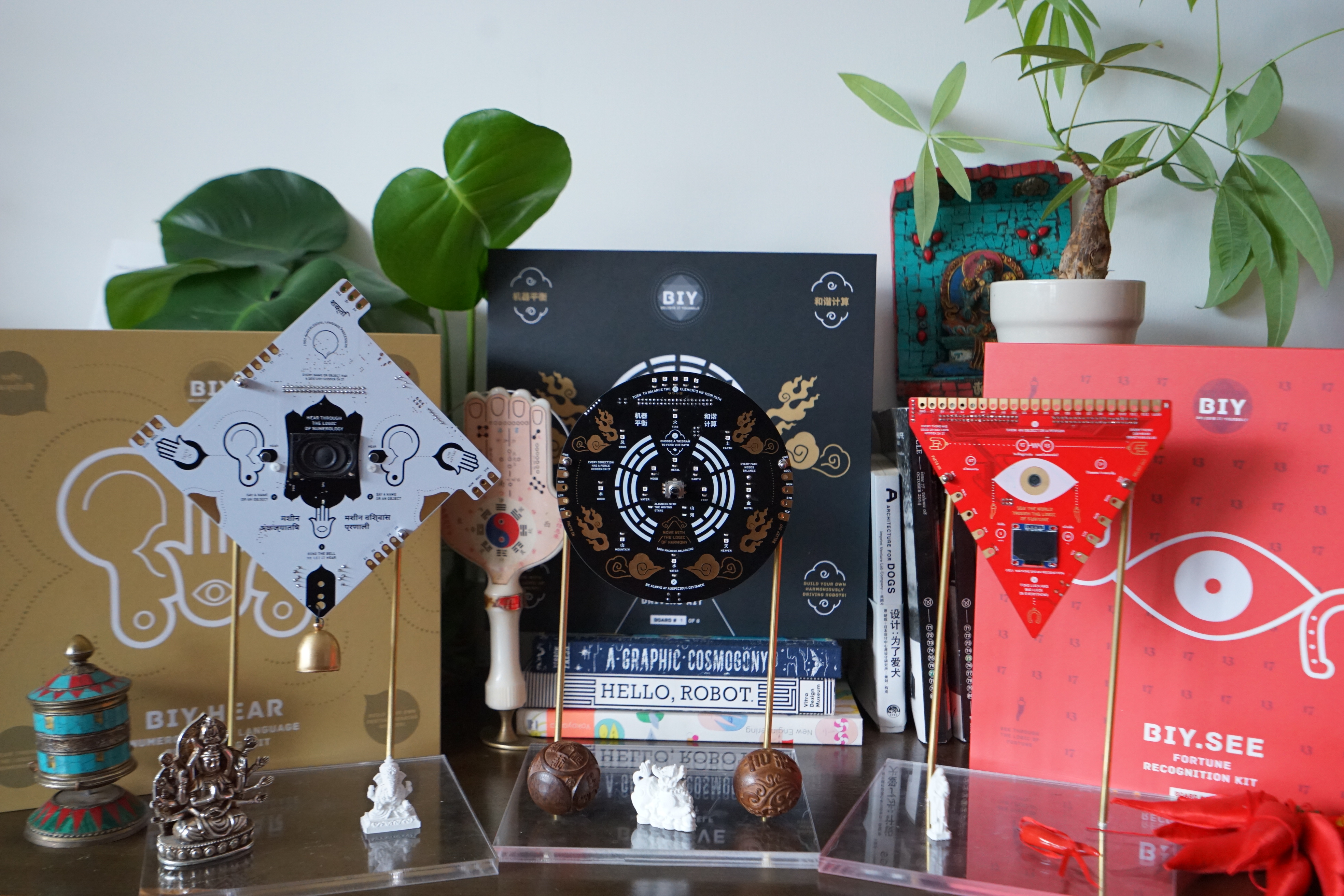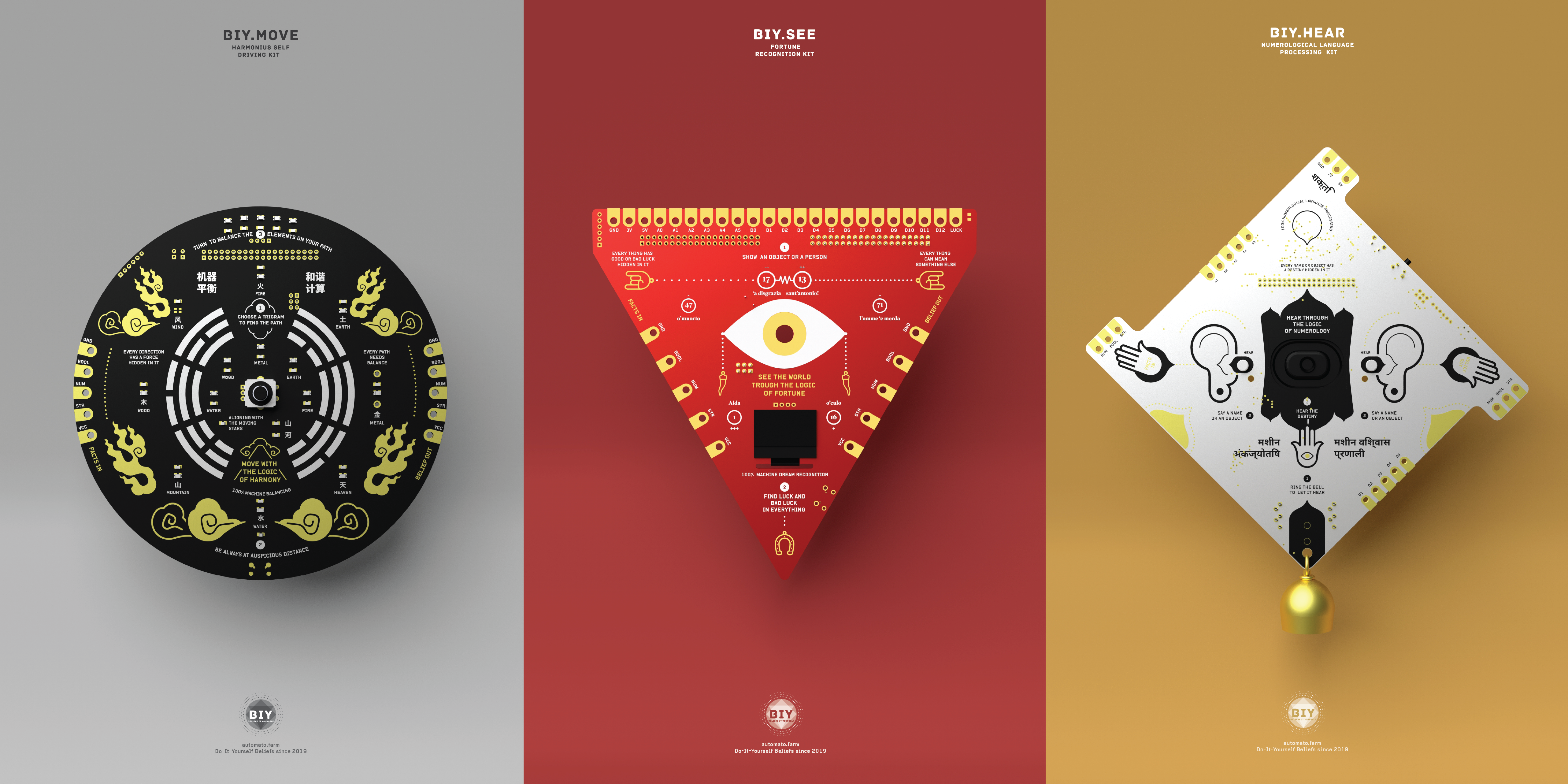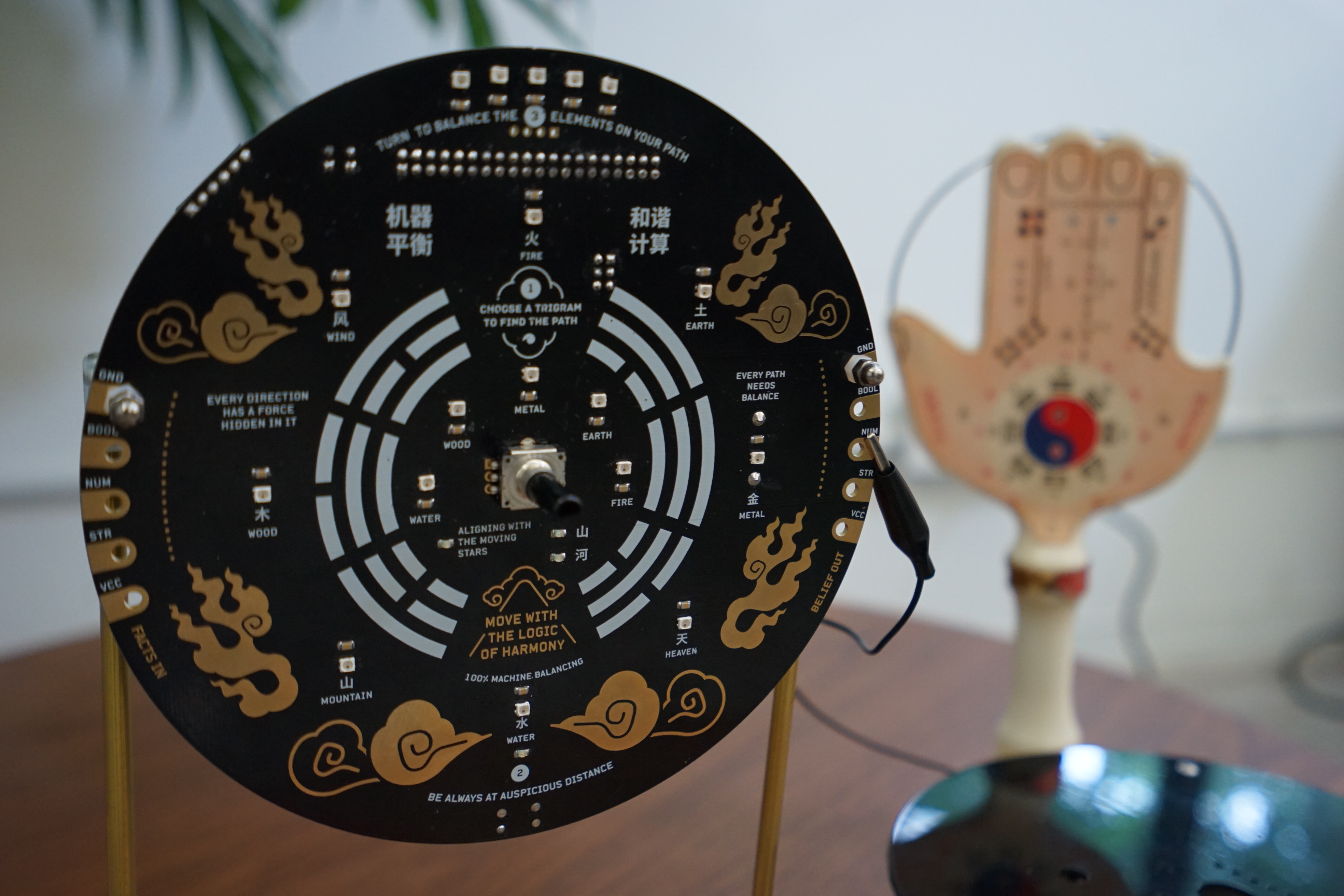Believe it yourself

The fast spreading and ease of access to Machine Learning and Cloud computing has brought to a boom of experiments and excitement around our ability to build machines that make sense, learn, measure and predict the world around us.
Moreover, with enough examples, we can train a tool or a ‘machine’ to recognize or quantify pretty much anything we want. ‘Beauty’, ‘Hotdog-ness’ or the more problematic ‘Criminal-ness’ and ‘Sexual orientation’ can be now measured within a few frames, based on a model, a probability, determined by a set of arbitrarily collected data. Subjective judgments and biased datasets can easily be turned into objective measures and potential truths, which will then be embedded in devices around us.
But what if we would train machines to measure even more unmeasurable, personal and culturally driven things? If we gather enough samples could we detect signs that prove and detect our superstitions? and can we use that to build tools and devices that reflect our own beliefs?
We worked with experts in fortune telling from Italy, geomancy from China and numerology from India to translate their knowledge and beliefs into 0100110010. With BIY™ you can tinker with cameras that can see luck, microphones that interpret your destiny, and compasses that can point you to harmony and balance.
As we tend to believe what machines say without often questioning them, now we can at least make machines that believe what we might believe in.



BIY™ was a commision by the MAK Vienna for the 2019 Vienna Biennale and part of the “Uncanny Values” Exhibition curated by Marlies Wirth and Paul Faigenfeld.
Thanks to all the friends of automato.farm that helped with their support, beliefs, brains, and hands: Marlies Wirth, Paul Feigefeld, Jose Emiliano Salto del Giorgio, MariaLuce Lupetti, Bizhou Wang, Chiu Chih, Mi You, Azure Yang, Carmelo Ferreri, Daniel Prost, Bob The Voice, San Isidoro, and San Gennaro.